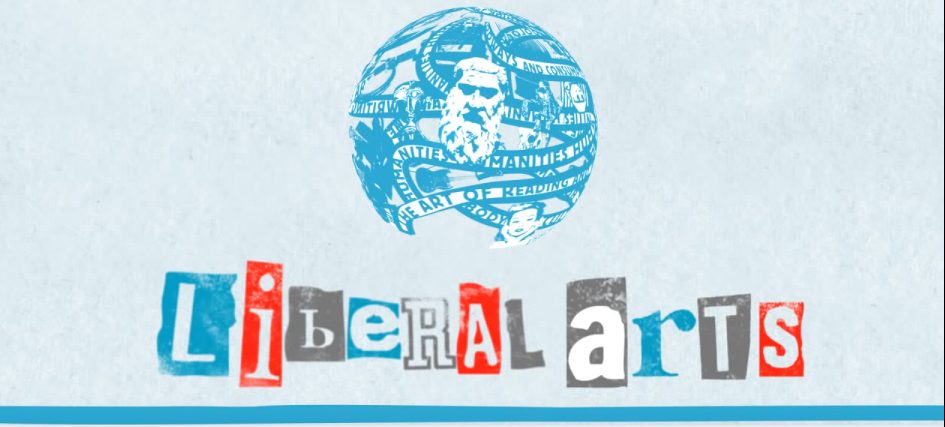“So what do you study?”
“Liberal Arts.”
“Oh cool… but what IS Liberal Arts?”
This is the conversation I have with everyone I meet at university and is why I am dedicating this blog post to explain what Liberal Arts really is and why I enjoy my degree so much.
“So…what IS Liberal Arts?”
Liberal Arts is a flexible degree that allows you to select one subject as your major, modules in other disciplines within the ‘Arts’ and core Liberal Arts modules, creating your own personalised course. You will also develop your language skills, studying an ancient or modern language in your first year, and continuing in further years should you wish.
This is my favourite way of explaining what Liberal Arts is to people who do not understand:“Liberal Arts means enrolling into the faculty of arts or social science then handpicking your major and minor for your course according to your interest.”
“What kind of subjects can I study in my Liberal Arts degree?”
Liberal Arts at Exeter incorporates a wide variety of subjects, mostly within the humanities and social science departments, as well as from The Business School:
Business
- Economics
- Marketing and Management
Humanities
- Archaeology
- Art History and Visual Culture
- Classics and Ancient History
- Drama
- English
- Film Studies
- History
- Modern Languages
- Theology and Religion
Social Sciences
- Anthropology
- Arab and Islamic Studies
- Criminology
- International Relations
- Philosophy
- Politics
- Sociology
“How is Liberal Arts different from other degrees?”
The Liberal Arts degree gives you the freedom to study a wide range of subjects from across the university. There are no boundaries, except for timetable constrains. The greatest benefit is you can specialise in your major while dabbling in other subjects. You will also be able to learn a new language or sharpen your language skills by taking an ancient or modern language.
The core Liberal Arts modules encourage you to think critically and support your field of specialisation with concepts and theory. Certain modules also give you real-life industry experience, preparing you for the workplace.
“How is a Liberal Arts degree structured?”
If you want to know more about the programme structure please visit: http://www.exeter.ac.uk/undergraduate/degrees/libarts/liberal/#Programme-structure
Note: Students have to take a total of 120 credits each year.
Here is how I structured my 3-year Liberal Arts programme:
Year 1
Compulsory modules
- Liberal Arts: The Art of Reading and Writing (15 credits)
- Liberal Arts: Being Human (15 credits)
Optional modules
- English, my major: Beginnings (30 credits)
- History, my minor in term 1 (15 credits)
- Theology, my minor in term 2 (15 credits)
- French, language: French Beginners (30 credits)
Year 2
Compulsory module
Liberal Arts: Humanities in the Workplace (30 credits)
Optional modules
- English, my major: Creative Writing- Building a story (30 credits)
- English, my major: Romanticism (30 credits)
- French, language: French Intermediate One (30 credits)
Year 3
Compulsory module
- Dissertation (30 credits)(I chose “Creative Writing Dissertation” in English).
Optional modules
- English, my major: Life and Death in Early Modern Literature (30 credits)
- English, my major: Writing for Children and Young Adults (30 credits)
- French, language: French Intermediate Two (30 credits)
The course gets more and more flexible each year. In your final year, you will be completely in charge of what you want to study and what your dissertation will be about.
The degree title I will receive having followed the above course structure is ‘BA Liberal Arts (English with proficiency in French)’. You can only get the language proficiency title if you take at least 60 credits worth of language modules during your three/four years of study.
Choose Liberal Arts!
If you are an indecisive person who is not really sure what to study at uni, Liberal Arts is the perfect choice for you, as you can study a few subjects at the same time. The subjects range from Law and Economics, to Drama and Modern Languages, and the list goes on.
I first applied to Exeter wanting to study BA English, however, I didn’t have enough English Literature experience from secondary school and so was introduced to BA Liberal Arts instead. It all worked out so well because I ended up loving my degree so much, more than I think I would have enjoyed my BA English degree, because of its flexibility and versatility.

